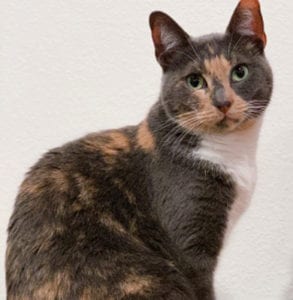It’s likely that many have heard about the  two house cats in New York and the pug in North Carolina who tested positive for the novel coronavirus, COVID-19. For a while now, we have also been hearing about the two dogs in China, a cat in Belgium, ferrets, and now several large cats diagnosed with COVID-19 at the Bronx Zoo. Of course, these are worrisome findings for pet owners and veterinarians.
two house cats in New York and the pug in North Carolina who tested positive for the novel coronavirus, COVID-19. For a while now, we have also been hearing about the two dogs in China, a cat in Belgium, ferrets, and now several large cats diagnosed with COVID-19 at the Bronx Zoo. Of course, these are worrisome findings for pet owners and veterinarians.
 two house cats in New York and the pug in North Carolina who tested positive for the novel coronavirus, COVID-19. For a while now, we have also been hearing about the two dogs in China, a cat in Belgium, ferrets, and now several large cats diagnosed with COVID-19 at the Bronx Zoo. Of course, these are worrisome findings for pet owners and veterinarians.
two house cats in New York and the pug in North Carolina who tested positive for the novel coronavirus, COVID-19. For a while now, we have also been hearing about the two dogs in China, a cat in Belgium, ferrets, and now several large cats diagnosed with COVID-19 at the Bronx Zoo. Of course, these are worrisome findings for pet owners and veterinarians.What we know about the house cats in New York is that one cat was living with a pet owner that tested positive for COVID-19. The second cat was an indoor-outdoor cat living in a home with several pet owners, none if which had signs nor were tested for COVID-19. Both cats and the pug had mild respiratory signs and are expected to make a full recovery.
So far, it appears that very rarely animals can become infected. Cats can rarely spread the virus to other cats, and cats and dogs get mild signs of disease. What we don’t know is if pets can transmit the virus to people.
However, pet-to-people transmission appears to be unlikely and that there is no evidence that animals play a significant role in spreading the virus.
There is still a lot we don’t know, but it does appear, in very rare circumstances, that the virus can spread from people to pets. Because of this, it is recommended that pet owners treat pets just like any other family member. If you have symptoms of COVID-19 or have been tested positive, have a healthy person care for your pets. Do not sleep with, kiss, snuggle, or share food with your pets. If you must care for your 4 legged family members while sick, wear a mask and wash your hands before and after handling.
In addition, our pets should also socially separate from other non-family pets. Keep cats indoors and your dogs away from other dogs. Since the virus can live for periods of time on surfaces, do not go to dog parks.
There is an animal test available for COVID-19. This animal test is completely different from the human test (pet testing does not reduce in any way the amount of human testing that can be performed). These animal tests are only performed after specific criteria is met. For a pet to be tested, the pet must be showing signs, living with a person that has tested positive for the novel coronavirus, has previously been tested negative for other much more common causes of respiratory infections in cats, and the State Veterinarian or State Health Department Officials have been notified.
The Groveport Canal Animal Hospital is staying updated to the rapidly evolving COVID-19 situation and will continue to keep you informed. Another great resource is the CDC’s website: https://www.cdc.gov/coronavirus/2019-ncov/faq.html#COVID-
19-and-Animals

